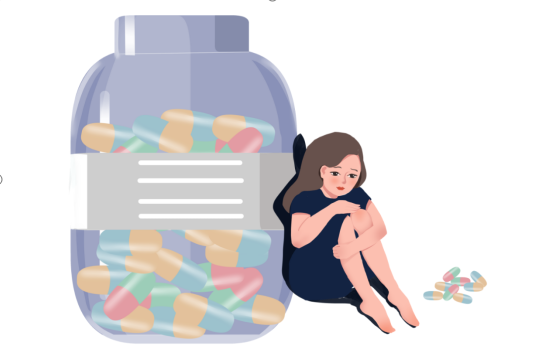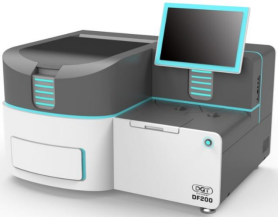Psychosis is a chronic and relapsing disease. At present, psychotropic drug treatment is still the main method used in psychiatry to control psychiatric symptoms. Since many antipsychotic drugs do not have injection forms, oral antipsychotic drugs are the most commonly used and most convenient route of drug administration. However, in clinical practice, the compliance of psychiatric patients is significantly lower than that of patients with physical diseases due to the particularity of psychiatric disease. Although various means such as patient education, group therapy, and family therapy can be used to intervene, the level of medication compliance is still very low.

During taking the medicine, the patient will refuse the medicine, keep the medicine, and hide the medicine, etc., resulting in the patient not receiving effective treatment and relapsing disease, and the hidden medicine is very dangerous. Taking a lot of medicine at one time may cause life-threatening hazards and seriously affect the patient’s therapeutic effect and life safety.
Table 1 Causes of patient refusing to take medicine and hiding medicine |
Cause | Case number | Percent |
No self-control | 65 | 54.17 |
Worry about adverse drug reactions | 20 | 16.67 |
Delusions of persecution or relationship | 18 | 15 |
Feel well and unnecessary to take medicine | 9 | 7.5 |
Fear of taking medicine will cause obesity | 5 | 4.17 |
Hoarding drug for suicide | 3 | 2.5 |
Total | 120 | 100 |
During clinical practice, doctors cannot accurately judge patients' medication compliance by counting pills, checking case records, and inquiring patients. However, a short period of mild non-compliance can significantly increase the risks of relapsing disease, patient’s safety and others.
Therapeutic drug monitoring to judge patient’s medication compliance and prevent relapse
Therapeutic drug monitoring is the most powerful tool for verifying patient medication compliance. By regularly testing the concentration of drugs and active metabolites in the patient's biological fluids (including whole blood, serum, plasma or urine, etc.), it is reasonable to judge whether the patient is taking medication, whether the dose and concentration used are reasonable. If the concentration is abnormally low, the dosage of the patient's medication can be reasonably inferred, so as to correct patient’s behavior in time to ensure the effectiveness and safety of drug treatment.

Overdose | Adverse reactions, poor tolerance, high treatment cost |
The therapeutic reference concentration range |
Taking too little or missing a dose | Lack of treatment response, poor efficacy outcomes, higher hospital costs |
Therapeutic drug monitoring is also a powerful measure to prevent relapse during maintenance therapy for patients. For example, in patients with schizophrenia taking clozapine, the fluctuation of clozapine plasma concentration can predict the possibility of relapse or rehospitalization. By implementing therapeutic drug monitoring, maintaining the plasma concentration within the therapeutic reference concentration range can effectively prevent relapse.
Significance of therapeutic drug monitoring
The individual differences of antipsychotic drugs are large, and it is very important to monitor the plasma concentration of antipsychotic drugs:
Individualized drug administration: Due to individual differences in drug responses, treatment medication must follow the principle of 'individualization', that is, the dosage used must vary from person to person. Only when the drug regimen is formulated according to the specific conditions of different patients, the drug therapy can be safe and effective.
Diagnosis and treatment of drug overdose poisoning: If the patient takes an overdose of antipsychotic drugs by himself, the plasma concentration can be detected to determine what kind of drug poisoning is, so that corresponding rescue measures can be taken.
Judging the compliance of patients with medication: psychiatric patients often have the phenomenon of drug withdrawal, reduction or overdose in the course of treatment. Studies have shown that more than 50% of patients do not take medication as prescribed by the doctor. It can be found in time whether the patient is taking the medicine prescribed by the doctor.
Therapeutic drug monitoring (TDM) is the secret weapon for individualized and precise medication of psychotropic drugs. It can effectively detect and solve some problems of drug ineffectiveness or adverse drug reactions, assist clinical individualized precise medication, and bring good news to patients according to their needs.
DIAGREAT Therapeutic Drug Monitoring (TDM) Chemiluminescence Solution
DIAGREAT DF200 adopts innovative patented chemiluminescence technology.
It has the advantages of high sensitivity, fast detection speed and excellent performance.
Effectively provide comprehensive,
perfect professional testing services for individualized medication and precise diagnosis and treatment to protect patients' drug safety!

DIAGREAT psychotropic drug testing items and other testing items
Category | Product name | Sample type |
Immunosuppressant | Tacrolimus | Whole blood |
Cyclosporine A | Whole blood |
Mycophenolic acid | Serum, plasma |
Antipsychotic | Carbamazepine | Serum, plasma |
Valproic acid | Serum, plasma |
Phenytoin | Serum, plasma |
Total risperidone | Serum, plasma |
Antibiotic | Vancomycin | Serum, plasma |
Linezolid | Serum, plasma |
Voriconazole | Serum, plasma |
Teicoplanin | Serum, plasma |
Meropenem* | Serum, plasma |
Anticancer drug | Methotrexate | Serum, plasma |
Paclitaxel | Serum, plasma |
5-fluorouracil* | Serum, plasma |
Cardiac Glycoside | Digoxin | Serum, plasma |
Antiasthmatic | Theophylline | Serum, plasma |
Anti-tuberculosis drug | Isoniazid* | Serum, plasma |
Rifampicin | Serum, plasma |
Note: * is the upcoming TDM item.
References.
精神病病人服药依从性的影响因素及对策
住院精神病患者拒服和藏药行为的原因与对策-熊静